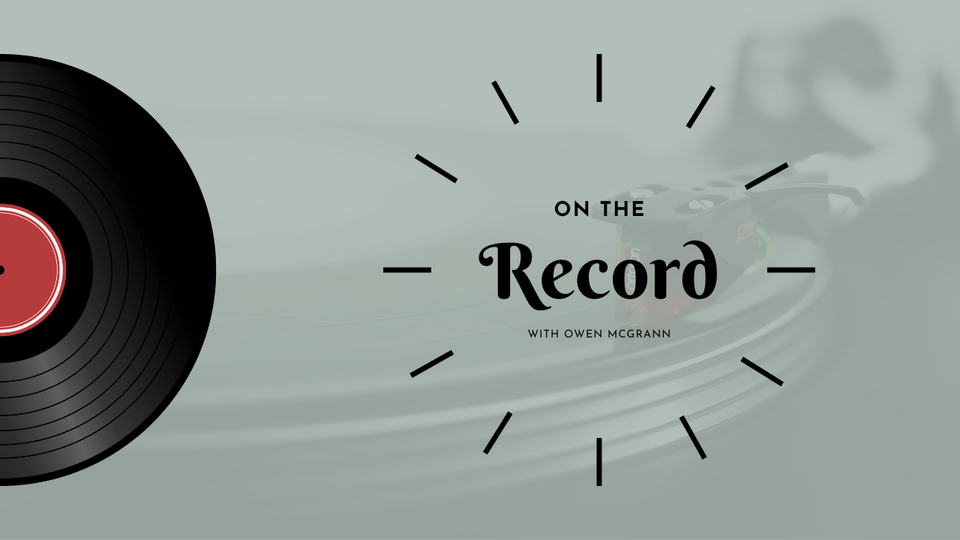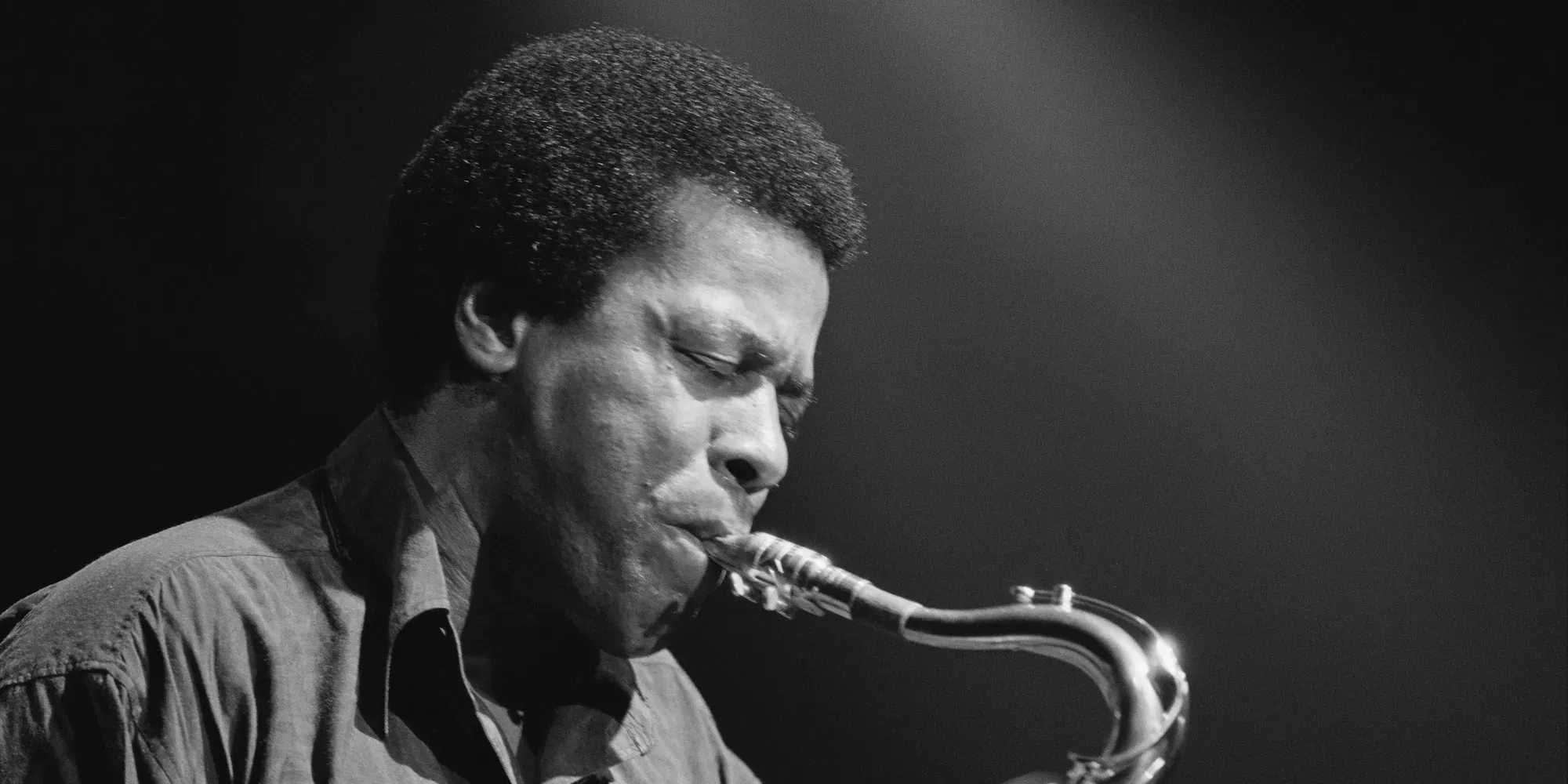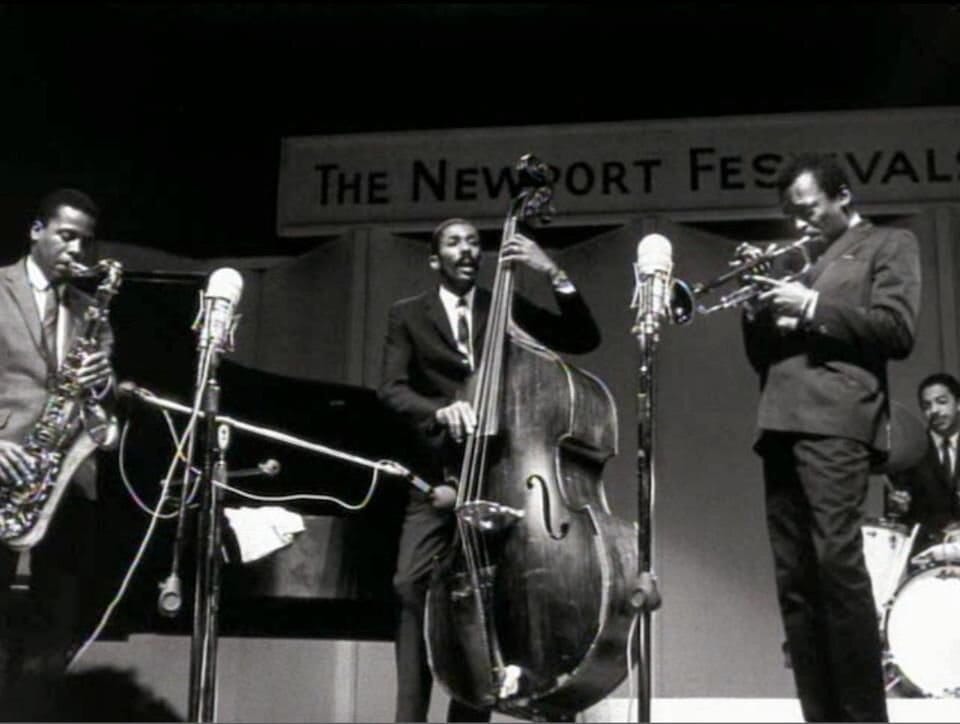OTR, Take 41: Wayne Shorter & Co - Live at Detroit Jazz Festival

Live jazz is always an adventure.
On one end of the spectrum, you have a group of excellent musicians playing together without much experience as a group. You can see them feeling each other out, finding the space in the new communal endeavor. There's a lot of poking and prodding, a heavy reliance on expected form, and thrilling moments of runs away from standards. This is a high-wire act with a net, generally: the musicians are playing with a standard song or form and improvising off commonly known pieces.
On the other end of the spectrum, you have a group of musicians who have played together for ages and play high-wire acts without a net every time they set up and jam. No matter how composed a tune, each of the musicians pushed and pulled and bent the music each time through, determined to find something new and unexpected. Going to a show of the former type of group – the excellent musicians playing together in early stages – is exciting because you feel things are always this close to falling off the rails. With the latter type of group, you realize there are no rails at all, no road that you can see, and you are along for the ride. And it is exhilarating.
(In between these two extremes are the proficient musicians and groups. They play all the right notes, at the right time. They're pleasant and you can't really find fault in the music – except it isn't alive in the same way. Like reading a book that is beautifully written but has no story or guts. This is where almost all art exists: well-crafted, unobjectionable, and without that spark that grabs you by the throat and doesn't let go until it makes its point.)
Oh, hi! Good morning! Happy Thanksgiving!
Got a bit ahead of myself there, didn't I? No slow, meandering into the thing itself, this morning. I guess I'm in that kind of mood. I'd blame Wayne Shorter, but I suspect the mood presaged the choice to put him on.
I woke up ready to go. So let's do this, shall we? Grab your cup of coffee or beverage of choice.

I'm often an impulsive decision-maker. It's one of those things that is fairly common for people with ADHD. This has led to some amazing decisions that most people wouldn't have made and has resulted in some very questionable calls. Yesterday, as I was browsing black friday deals, I very nearly bought a new iPad (I have one) and a new guitar (I have 8). I really wanted them at that moment! And this morning, I'm glad I didn't drop $3800 on shit I don't need, and don't want enough to justify that expense.
As I've become more aware of this trait, I've begun putting up processes that limit my ability to act on impulse. For instance: any purchase over $250 has to survive a 24-hour "do I really want this" period. I grew tired of having things that seemed like a great idea in the moment, but that I ended up hating and not using. (I'm looking at you, Remarkable 2!) I also rely more than most people on routines that limit the need for decision-making. I wake up at the same time, every day. I go to bed at the same time every day. I take Clare for a walk three times, every day. (Always take the walk is a mantra of mine.)
I do these things because it makes it easier for me to focus on the things that I want to be doing. There's a significant downside to this, though: one of the things that I do well is jump to action. Much of the time, my impulsiveness is coupled with good decisions – and if I put too many checks and balances on those decisions, I fail to take action. There's a balance to be reached: I am willing to take business risks that most aren't, and risk is the currency of business. But, as Audra reminds me, "There's often a legitimate reason people don't take that risk."

Wayne Shorter recently passed away at 89. In addition to a remarkable career (he rose to prominence with Art Blakely's Jazz Messengers, was a member of Miles Davis's Second Great Quintet, helped develop jazz fusion with Weather Report, and was a total musical badass), he led a life full of personal tragedy. His daughter died suddenly of a grand mal seizure when she was 14 and ten years later, Shorter lost his wife and niece in the crash of TWA 800.
A week ago, I was speaking with a relative who dismissed such personal tragedy, saying, "We all have that shit."
May I suggest that the appropriate response isn't to dismiss it as merely part of the human condition and that, perhaps, we would be better served to understand that because "we all have that" we must always understand that the people around us carry difficult things with us everywhere we go? As Vonnegut always sez, "God damn it, you've got to be kind."
The album I'm listening to this morning is one of – if not the last (I genuinely don't know) – live performances of Shorter's 70-year performing career. And boy, is it a beauty.

Have you ever listened to music with the express intent of determining the fissure points? The places where the musicians intentionally play off each other, play counterpoint, do something that stresses not falling into lockstep?
I need to hire. I'm tapped out and I don't want to continue working the way I'm working. I'm getting caught in the day-to-day in a way that is holding me back from the growth that is right at my fingertips. Part of the work is to continue automating some things. (One benefit of having ADHD is that the kind of work that I instinctively loathe is 95% of the time work that can and should be automated, so I have a pretty good nose for automatable tasks.) But part of the next step is bringing someone on board to help me get back to the value I add to the business: relationship building, strategy for customers and for the firms, vision, etc.
And the other side of impulsivity is overthinking decisions that are big enough that I know bear thought. What a cruel joke, isn't it, to be exceptionally capable of making quick and decisive calls except when you really need to.
It's time to act, whether or not I get it right. Audra's sick of hearing me vacillate among options. I'm tired of turning the decision in my mind trying to capture each nuance to better make a decision that simply needs to be made. It's time to get on stage and play some jazz. You have to be in that first group of folks playing to figure it out, always on the cusp of failure, before you can be in that latter group: dangerous not because you might fail but because you might succeed.

More than any other type of music, I think of jazz as closest to lived life. I don't mean this in some pretentious "this is real art" kind of way so much as jazz is a type of controlled chaos.
Classical music is, by nature, pretty limited to the score. Yeah, you have some versions of symphonies or piano pieces that transcend others – some transcendent playing of the thing – but it's still hidebound. Glenn Gould's two versions of "The Goldberg Variations" are quite different (and both among the best pieces of recorded music we have), but they exist within a small continuum of "The Goldberg Variations." Classical is superego: an intellectualized and structured imposition on reality.
Life, in my experience, doesn't function like this. We don't know the notes we're going to play several bars down the line as we get started. Best case scenario is we can read music well enough to sight-read competently, and not many of us can do that.
Rock music is id, for the most part. I hate to break it to you, but 97% of rock music is four chords and inane poetry written by people who aren't poets. Don't get me wrong: I love rock music. Dearly. It hits at something primal, fills a need. But unless we're running our lives without any thinking (and please don't) rock is an escape, not akin to real life.
(Don't get me started on country, it won't end well and I'll inevitably end up deeply insulting someone. Let's just say Country is like rock, but with lyrics by toddlers about trucks and a conception of love fit for that same age group.)
Jazz, on the other hand. Jazz takes the rarefied composition of classical music and muddies it up with human frailty and fuck-ups. It exists in a space where the danger isn't playing the wrong note but in losing the plot entirely. There's some structure, but at most any time, one of the people you're playing with can take you off on a tangent and you'd better keep up! It isn't solitary: jazz, by its nature, is meant to be a group activity. And it's always just a moment away from falling apart.
But those moments when you're locked in a groove, with four or five other people making magic happen with you? When each member is doing something fundamentally unique to them, playing together in a way that could only sound like those people playing – is there anything better?
Do you ever feel better than in those moments when you contribute to something where everyone is bringing their unique ability and creating something far greater than the sum of the parts?
So here's to building teams. To helping people find their unique strengths and empowering them. To walking that high wire of life, despite the inevitability of falling.
It's only the fact of the fated fall that gives your time on the line meaning, after all.
Member discussion